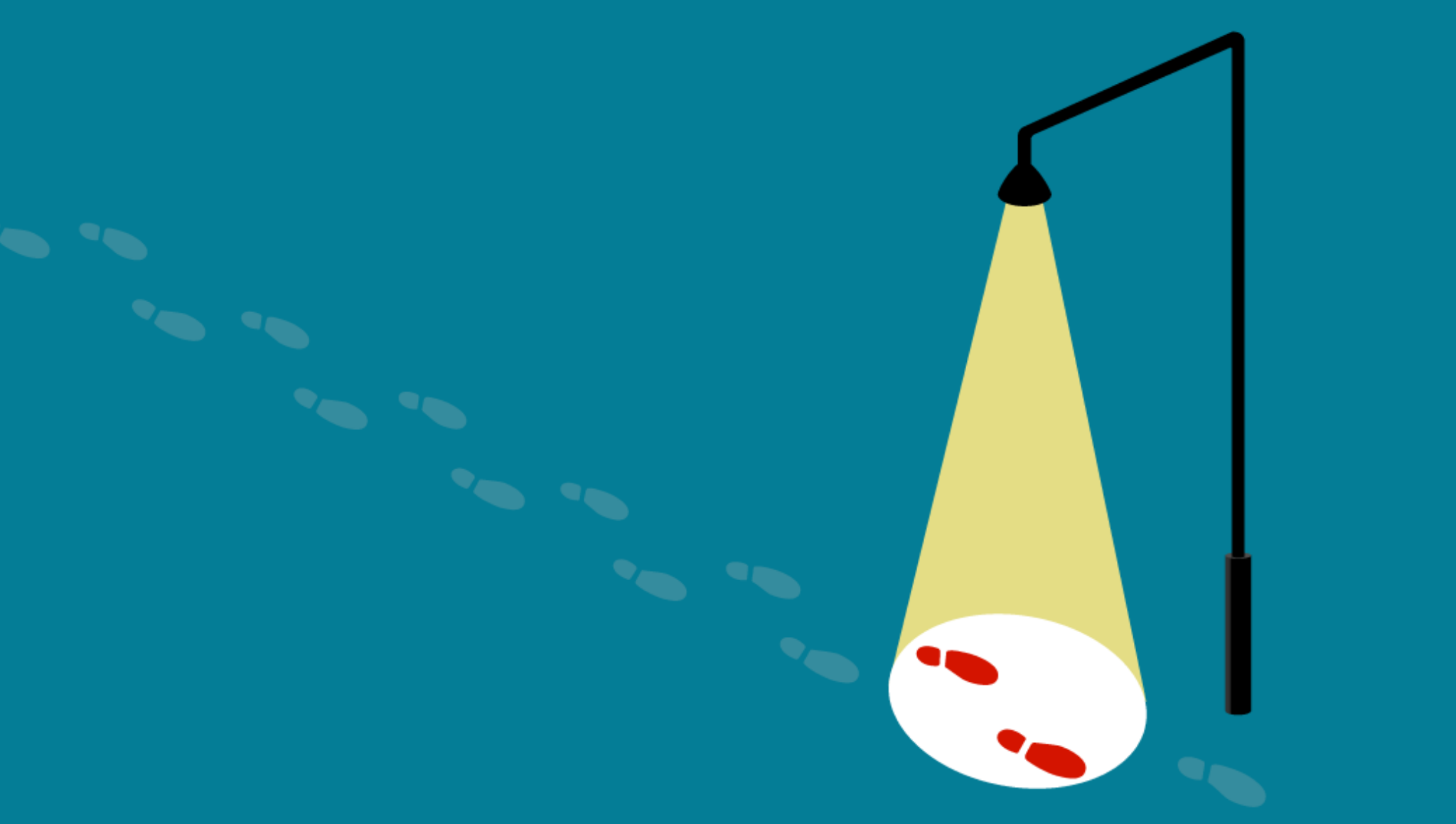The Future Stories Award celebrates and recognises the achievements of investigative journalism, those that have just revealed something new and unnoticed or already shook things up. Looking for outstanding investigative works in several categories, the Future Stories Award is a unique opportunity for Lithuanian and Slovak journalists working in this field and focusing on the local stories of important but often less visible topics.
Future Stories: Audience’s Choice Award 2021
The Future Stories Award celebrates and recognises the achievements of investigative journalism, those that have just revealed something new and unnoticed or already shook things up. Looking for outstanding investigative works in several categories, the Future Stories Award is a unique opportunity for Lithuanian and Slovak journalists working in this field and focusing on the local stories of important but often less visible topics.
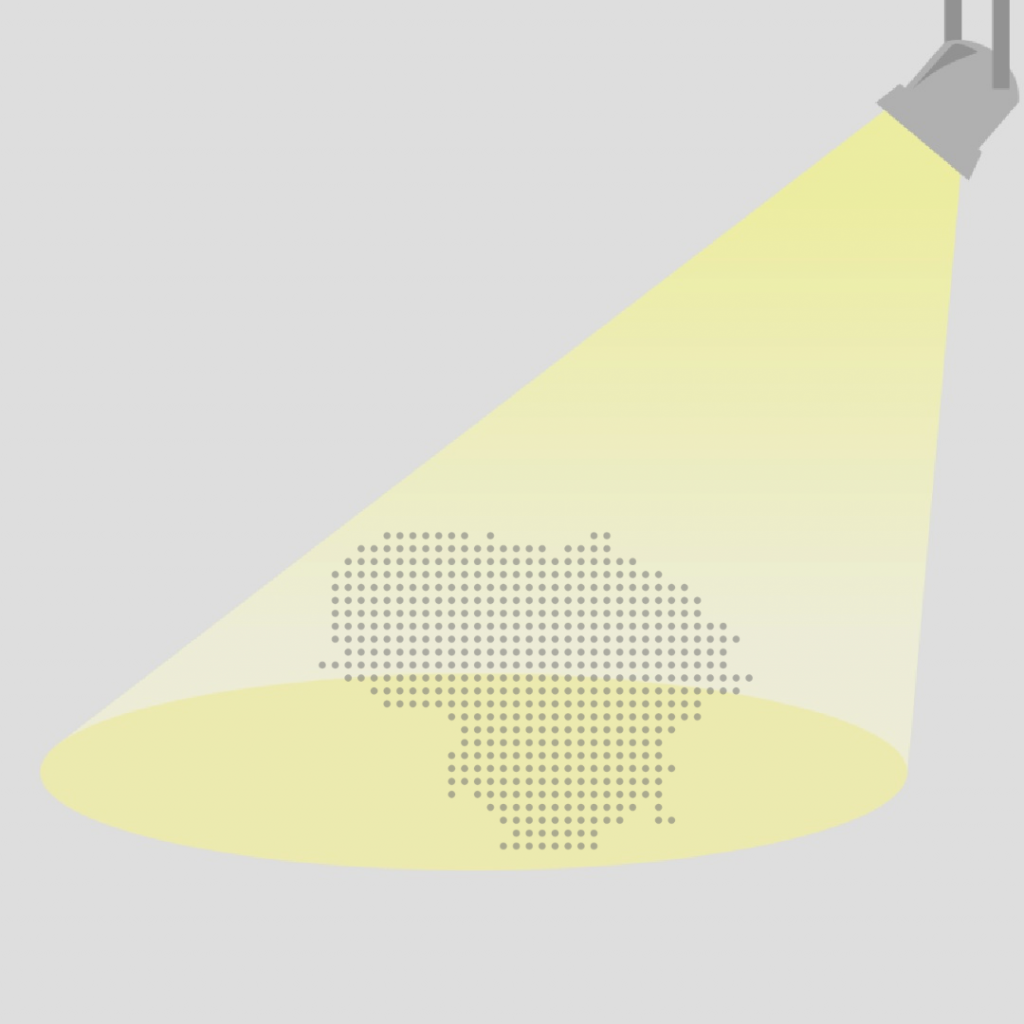
An expert Jury composed of representatives of Media4Change and European Dialogue and external experts is evaluating each application on the basis of several criteria and will decide who will receive awards in three main categories (corruption, environment, human rights) and four special categories (local/regional media, young media creators/new media, the best interactive presentation, interaction with citizens).
Quality investigative journalism is crucial for democracy, as it helps bring important, but intentionally or unintentionally hidden topics to light. Topics, which influence people’s lives or the whole society. If the investigations don’t catch attention of people, their impact is smaller. It’s also important for journalists to show their audiences that they care about their opinions and preferences when it comes to topics, approach to coverage, or format of the final report. That’s why they participate in this competition and therefore it’s your turn now:
take part as well and decide on who will become the Audience’s Choice in the scope of the Future Stories Award 2021.
How does it work?
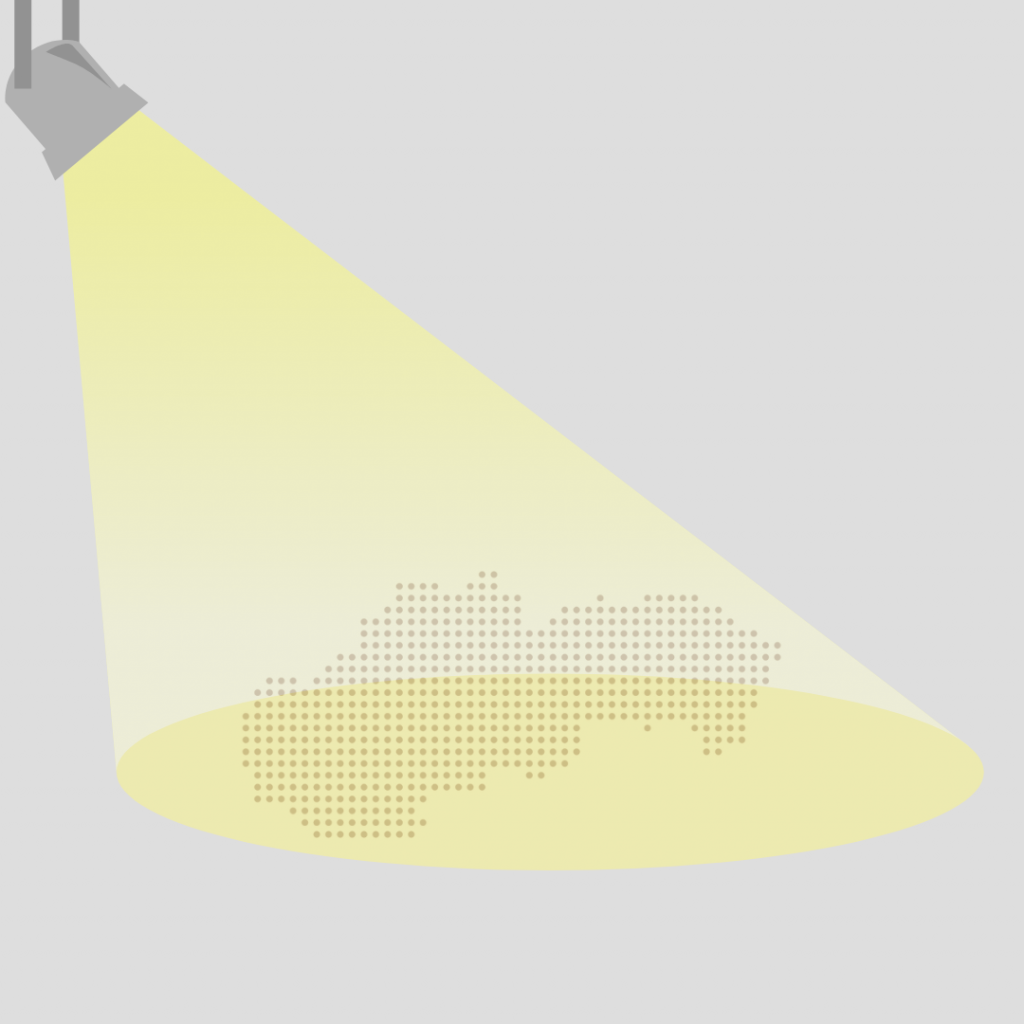
All eligible investigations are available on this page – short promo and link(s) to published reports are included.
The decision for whom to vote is up to you, but you can also use the carefully chosen evaluation criteria used by the expert jury as an inspiration.
You can vote for as many investigations as you wish, but only once within 24 hours. The voting limitation is based on the IP address. Besides that, we don’t store any personal data of yours. NISI (Media4Change) confirms to comply with the provisions of Regulation (EU) 2016/679 of the European Parliament and of the Council of the EU of 27 April 2016 on the protection of individuals with regard to the processing of personal data and to the free movement of such data (GDPR).
The public voting starts on 12 January 2022 at 00:00 CET and will be closed on 31 January 2022 at 23:59 CET.
Are you ready? Below you can check all twenty eligible investigations that have been submitted to the call for entries and vote for the story that you find the best.
1. A series of investigative stories that lead to sanctions against Belarusian power players
Authors: Šarūnas Černiauskas, Stanislau Ivashkevich, Alexander Yaroshevich, Miglė Krancevičiūtė
Other materials: report 2, report 3
Two investigative stories were produced in collaboration between Siena.lt (Lithuania) and Belsat TV (Belarus), with support from OCCRP. The team investigated two Belarusian oligarchs: Aliaksei Aleksin and Alexander Zaytsev, who rose to power and became some of the most powerful businessmen in Belarus. The story also investigated Alexander Lukashenko’s claims that announced a reform of the national tobacco industry, further bolstering the productivity of the already over-productive cigarette factories.
2. Will they give mops to sisters? There is no one to clean the hospital in Prešov, the director fired the company
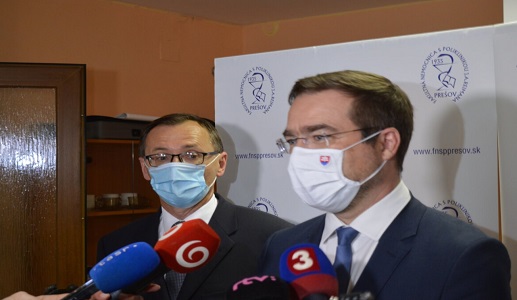
Author: Michal Frank
The investigation opened the case of cleaning FNsP Prešov (University Hospital). The new director kick off the cleaning company during the second wave of the COVID-19 pandemic, he put there a new company (two days cleaned hospital staff). The new company quickly called people from the employment office and did not even pay them. The originaly company went bankrupt and most of its employees lost their jobs. It was a very difficult situation during the COVID-19 pandemic in a region with high unemployment.
3. Scandal engulfs Lietuvos žirgynas: directors’ contacts and horse sales arouse suspicions
Authors: Jurga Tvaskienė (an investigative reporter at LRT)
Data gathered for the LRT investigation published on 22/03/2021 shows that the state-owned Lietuvos žirgynas (Lithuanian Stud Farm), which is dedicated to the preservation of the gene pool of Lithuanian breeds, has been selling horses for several years through an intermediary, and that the sale prices, according to the available documents, are indicated as too low. As late as autumn 2020, a group of foals was sold for just a few hundred euros to a foreign buyer as an addition to other purchases. The Lithuanian Ministry of Agriculture initiated an investigation into the situation.
4. Rapid tests for 6 million: the shadow of the PM Skvernelis’ team behind the scandalous procurement
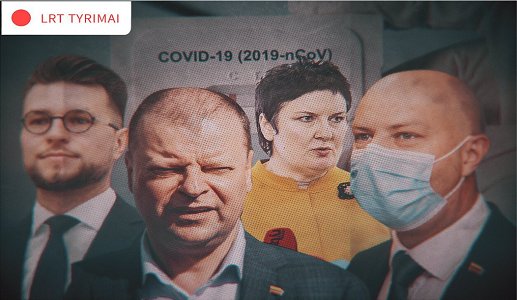
Authors: Indrė Makaraitytė, Jurga Tvaskienė, Mindaugas Aušra (all from LRT)
In Spring 2020, the Government of Lithuania has purchased rapid tests for 6 million euros. When law enforcement launched an investigation into this procurement, the first suspect was the Deputy Minister of Health. However, data gathered by LRT journalistic investigations team shows that the transaction, which is currently being investigated by law enforcement, has received a lot of attention from the team of Prime Minister Sauliaus Skvernelis. The direct order to start the procurement urgently came from the then Prime Minister’s adviser, and the tests were purchased by a company that had just been established. Moreover, 0.5 million tests were purchased at three times the price paid by other institutions and from a company that had rarely participated in public procurements. So far, most of the tests have not been used.
5. Kremlin oligarchs’ business in Lithuania was supplying equipment not only to the contractors of Astravets Nuclear Power Plant but also to the contractors of Crimean power plants
Authors: Rūta Juknevičiūtė (LRT), Mikhail Maglov (“Scanner project”), Ivanna Trutnenko (RFE/RL’s Ukrainian Service)
A Kaunas-based company breached EU sanctions by supplying equipment for the construction of power plants in Russian-annexed Crimea. Water filtration systems from Lithuania were used in the construction of thermal power plants in Crimea, as data collected by LRT Investigative Journalism Team and a Russian anti-corruption initiative Scanner Project shows. The Lithuanian company Run Engineering supplied the systems to a Russian company Voronezh-Aqua, not being authorised to export dual-use items.
6. Lithuanian big timber lobby’s clandestine influence
Authors: Mindaugas Aušra, Jurga Tvaskienė (both from LRT)
Other materials: report 2, report 3
The series of investigations Miškų valdovai (Eng. Timber Lords) focuses on the forestry business lobby, which for at least 10 years has been trying to influence politicians in favour of business to pass amendments to state timber sales so that timber becomes cheaper for the companies with the largest market shares. The investigation analyses the industry’s intensified efforts after the forest reform, calculates the damage to the State and companies, and identifies the politicians who are most active in representing the industry’s interests. The series also exposes shadow timber sales schemes, which show that a large share of state timber is unaccounted for and that independent timber accountants employed by the State are also working for the largest timber buyers.
7. Lithuanian minister wrestled personal favours for public contracts
Authors: Mindaugas Aušra, Indrė Makaraitytė, Jurgita Čeponytė, Jurga Tvaskienė, Rūta Juknevičiūtė (all from LRT)
Other materials: report 2, report 3
The series of investigations into the then Minister of Transport and Communications, Jaroslavas Narkevičius, revealed not only abuses of power by regional Lithuanian politicians but also the nepotistic traditions of one of the national minority‘s political parties. The Investigation Department found that Narkevičius could not substantiate the costs of his house renovation from ten years ago, while the construction company that had carried out the renovation claimed that it had received payment for the works in exchange for winning public procurements. Part of the funds paid for repair works in kindergartens and schools was used to renovate Narkevičius’ family house.
8. What is not talked about in Slovak agriculture
Authors: Július Buday, Michal Frank
The amount of nitrogenous substances in our groundwater is increasing from year to year. There are several reasons. One of them is the lack of sewerage in many Slovak villages. However, the Water Management Research Institute has evidence that intensive agricultural activity is also a major producer. Farmers refuse.
9. Heavy metals as an environmental burden after mining activities on Spiš
Authors: Lenka Haniková, Radoslav Marek
Other materials: report 2, report 3
In the series of four articles, our team investigated the pollution of the Ružín water reservoir located in Eastern Slovakia. At the time, Ružín had some media attention thanks to a new environmental project being started by the Ministry of Environment. The aim of the project and the attention of the public and media were focused mainly on the surface waste from illegal landfills. The project is supposed to solve problems connected to relocation and the processing of the waste. Our team focused on the pollution of water by heavy metals, a serious problem with practically zero attention.
10. The looting of onshore space is a mere nothing: In the most beautiful lake, the house appears directly on the water
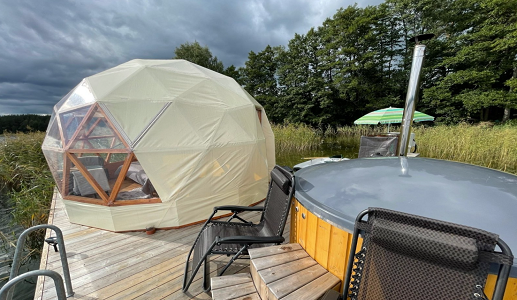
Author: Tomas Janonis
The topic of my journalistic research is illegal houses on the shores of Lake Baltieji Lakajai or even on the lake itself. They are built without any permits. And most importantly, they are located in Labanoras Regional Park, a state-protected area. The buildings not only damage the landscape, but at the same time, they hinder the rest of the people. Also, the owners of illegal cottages receive illegal income for their rent.
11. The handball club in Dunajská Streda received 2 million euros for the construction of a new sports hall. However, the city came into conflict with activists
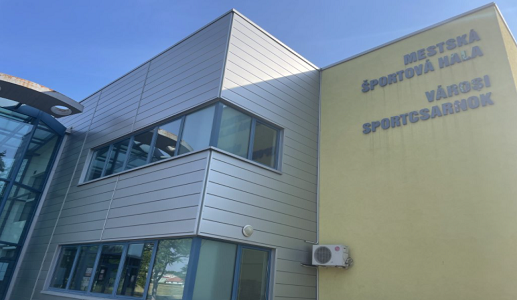
Author: Marco Németh, Adam Zavřel
The topic of research I processed is the building of a new multifunctional hall in the city leisure park in Dunajská Streda, where the city plans to build a new sports hall next to the old one, which includes cutting down 150 trees. After this proposal, many negative reactions came from citizens. The city officials began to consider buying land, which is located near the area selected by the city, but on which there are fewer trees. Activists have launched a petition blaming the city council for failing to provide accurate information regarding the construction. They also pointed out the exorbitant price of alternative land and submitted their proposals. Stakeholders are aware of the need to build a new sports hall so that a successful handball team can also take part in international competitions, but the question is also at what cost from the ecological viewpoint.
12. Lorry Slaves
Authors: Birutė Davidonytė, Dovydas Pancerovas
An investigation “Lorry slaves” reveals that one of the most important areas of the Lithuanian economy – the freight transport business – is based on immigrant exploitation. About 77,000 long-haul drivers are working in Lithuania, and about 90% of them are immigrants from Ukraine, Russia, Belarus, Tajikistan, Uzbekistan, or India. Believing Lithuanian businesses’ promises about high wages and good working conditions, these people come to Lithuania. But once they become employed, they get trapped in the exploitation schemes created by carriers. Those schemes are disclosed in our investigation. All of this is also related to tax evasion. The largest transport companies had the opportunity to avoid part of the taxes by paying drivers’ salaries in cash. We collected facts, testimonies, expert opinions, documents and made a two-hour documentary, the first such detailed story about this problem in Lithuania.
13. Baghdad to Lithuania: how Belarus opened new migration route to EU
Authors: Benas Gerdžiūnas, Indrė Makaraitytė, Rūta Juknevičiūtė, Jurgita Čeponytė (all from LRT), Kareem Botane (freelancer), Michail Maglov (Radio Free Europe)
The primary objective of the two part investigation (published on 14.07.2021 and 12.08.2021) was to map in detail the path of migrants travelling from Iraq to Western Europe via Lithuania and who benefits from their journey. We have found that the Belarusian regime, in cooperation with the Iraqi authorities, has simplified the procedure for issuing Belarusian tourist visas to Iraqi citizens. Iraqis usually obtained these visas through Iraqi travel agencies, as they had purchased the whole package from them: they were promised a legal trip to Western Europe, which consisted of a direct flight to Minsk, a few days in hotels arranged with the Belarusian authorities, and finally the transportation from the hotel to the Lithuanian border.
14. Camera systems in public spaces and human rights – which way, Slovakia?
Authors: Tereza Vahančíková, Lucia Gavenčiaková
Our article explores the relationship between the use of modern technologies to monitor public spaces and the rights of citizens whose data are being gathered. Using a case study of the city of Zilina we demonstrate that the use of cameras in public spaces lacks transparency, evaluation of its efficiency, and public debate in Zilina and in the whole country. First, the article covers the evolution of the public monitoring system in Zilina, including the technological components and their locations. Second, based on the statistics obtained from the city representatives, it analyzes and evaluates the efficiency of the public monitoring system, coming to a conclusion that the cameras were annually responsible for identifying just around 1 percent of the crimes. This conclusion raises the question of whether the use of cameras is proportionate to such invasion of privacy and human rights.
15. The government takes chance, also offers one
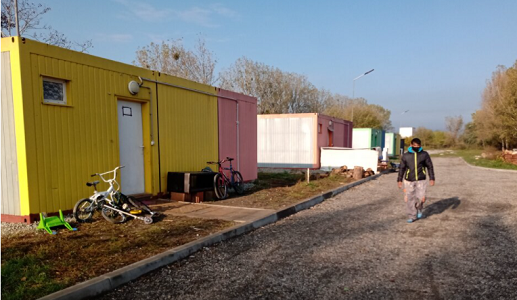
Author: Katarína Gécziová
Other materials: report 2, report 3, report 4, report 5
In 2020 I devoted my work to the situation in children’s homes, stories of adopted children, and their integration into social life. Because where the Daily Korzár is local, I specifically focused on the situation in the east of Slovakia.
16. The investigation into Belarus–European Union border crisis
Author: Augustinas Algirdas Šulija
In the summer of 2021, Lithuania started experiencing a massive influx of irregular migrants coming from the Middle Eastern and North African countries, which triggered an unprecedented humanitarian crisis in the country. According to Lithuanian officials at the time, the migrant flow was facilitated by the regime of the Belarusian authoritarian leader Alexander Lukashenko, who was threatening to flood its western neighbor with migrants and contraband as a response to the sanctions imposed by the EU and numerous countries for the crackdown on peaceful protesters following the 2020 Belarusian presidential election and the forced landing of Ryanair flight 4978, after which a prominent Belarusian opposition journalist was arrested. It is still the only investigation into migration from the countries the most irregular migrants are coming from to Lithuania.
17. The gates are open: the cheapest way to Europe
Authors: Vidmantas Balkūnas, Gabrielė Navickaitė
In 2021, the State Border Guard Service detained more than four thousand migrants near Belarus. How many crossed the border at all is unknown. Some of them manage to avoid the Lithuanian border guards and continue on to their dream country. This could be Germany, Finland, France, or Norway. Lithuania is of no interest to them. Our country’s border with Belarus is simply the closest, cheapest, and safest gateway to Europe. 15min found out the hitherto undisclosed facts about migration schemes – what paths migrants travel, who helps them, to whom and how much money is paid. There are also exclusive photographs attached to the report.
18. Lorry slaves. Lithuanian drivers’ stories
Author: Irma Bogdanovičiūtė
This journalistic investigation covers the modern slavery of Lithuanian drivers in their own motherland. The drivers are being exploited by the biggest driving companies like Girteka, Hoptrans, and others. Investigation showed that the schemes of hiding taxes, fake employment contracts, and misinformation is a commonplace. What is more, drivers experience psychological and physical violence made by their employers. Lithuanian law enforcement and the Commission of Labor Disputes are powerless to stop these damaging “traditions” in the logistic sector.
19. Problém s parkovaním
Author: Saša Brixová
For years they parked right infront of the entrance to their flats. Today, they are being fined by the police for that. We were contacted by these residents with a plea to find out why this change had happened.
20. A guy like everyone else? Wrong. Untold story of the attacker from the school in Vrútky

Author: Vitalia Bella
On June 11, 2020, 22-year-old Ivan Čulok attacked teachers and students of the United School on M. R. Štefánik Street in Vrútky, town in the northeastern Slovakia. Formerly a student at this school, Čulok fatally wounded Deputy Headmaster Jaroslav Budz with a knife. He also injured a janitor, a teacher, and two children who ended up in the hospital. While trying to escape, the attacker was then shot dead by the police. The motive for his act has never been investigated or revealed by the officials. As the first possible motive, bullying which, according to former classmates, Ivan Čulok had experienced at school for a long time was taken into consideration. In the article I tried to reveal Ivan´s background and motives that had led him to the brutal act.
Background
The Future Stories Award is one of the activities of the Media4Change – Future Investigative Story Lab project, which aims to support cooperation, innovation, and professional standards in the field of investigative journalism in Lithuania and Slovakia. It’s run by the National Institute for Social Integration (Media4Change program) from Lithuania and European Dialogue from Slovakia.
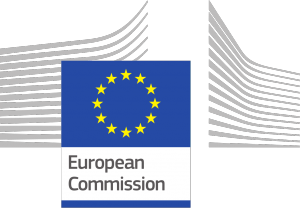
The project has been co-financed by the European Commission – DG CONNECT under the 2019 call for proposals “Media freedom and investigative journalism” (Pilot Project: Supporting investigative journalism and media freedom in the EU)
Disclaimer
The European Commission’s support for the production of this voting system does not constitute an endorsement of the contents, which reflect the views of the authors only and are their sole responsibility. The Commission cannot be held responsible for any use which may be made of the information contained therein.
